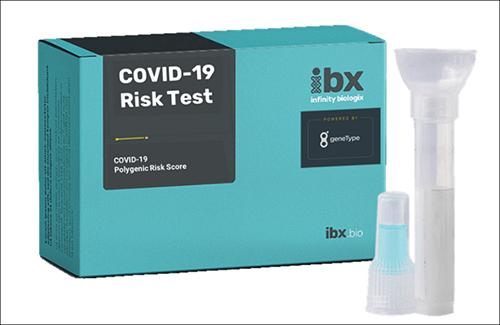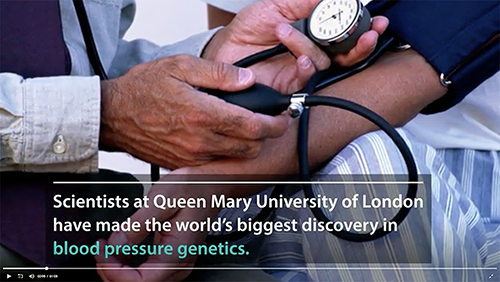Australian Company Launches At-Home Genetic Test in the US That Claims to Identify a Person’s ‘Risk’ for Contracting the SARS-CoV-2 Coronavirus. But What Science Supports the Test’s Ability to Accurately Assess Risk?
Since all Americans have access to free COVID-19 vaccines, many pathologists and clinical lab managers will ask if this test is even necessary. Some experts say “maybe”
Here’s another example of genetic test developers who are willing to push boundaries and sell a diagnostic test directly to consumers that has some diagnostic experts and pathologists challenging its clinical validity.
The test was developed by molecular diagnostics company Genetic Technologies Ltd. (NASDAQ:GENE) of Melbourne, Australia, and, according to an article in Science, is an at-home saliva test that “combines genetic data with someone’s age, sex, and pre-existing medical conditions to predict their risk of becoming extremely ill from COVID-19.”
In a non-peer-reviewed preprint, titled, “Development and Validation of a Clinical and Genetic Model for Predicting Risk of Severe COVID-19,” Genetic Technologies’ Chief Scientific Officer Richard Allman, PhD, and Senior Biostatistician and the study’s first author, Gillian Dite, PhD, wrote, “Using SARS-CoV-2 positive participants from the UK Biobank, we developed and validated a clinical and genetic model to predict risk of severe COVID-19. … Accurate prediction of individual risk is possible and will be important in regions where vaccines are not widely available or where people refuse or are disqualified from vaccination, especially given uncertainty about the extent of infection transmission among vaccinated people and the emergence of SARS-CoV-2 variants of concern.”
But since every American already has access to free COVID-19 vaccines, one wonders why this test would be launched in the US?
Determining Risk for COVID-19 Infection
Can a genetic test predict an individual’s risk of contracting a SARS-CoV-2 infection that would require hospitalization or cause death? Genetic Technologies and its US partner, Infinity BiologiX (IBX) of Piscataway, N.J., believe so.
According to a Genetic Technologies news release, the saliva test, which reportedly costs $175, enables a “leading-edge risk assessment that estimates your personal risk of severe disease,” IBX says on its website.
The at-home saliva-based test, which is intended for people age 18 and older, gives a risk score for contracting a serious COVID-19 case based on genetic and clinical information, IBX stated in its own news release.
The two companies partnered with Vault Health, a “virtual platform for telemedicine and diagnostics” developer, to distribute, and sell the COVID-19 Serious Disease Risk Test in the US.

In the IBX news release, IBX’s Chief Executive Officer, Robin Grimwood, said, “We see this initial agreement for the sale and distribution of Genetic Technologies’ COVID-19 Risk Test (above) as a critical collaboration in line with our mission to understand the genetic causes of common, complex diseases and to discover diagnoses, treatments and, eventually, cures for these diseases.” However, as Dark Daily’s sister publication The Dark Report previously reported, some geneticists, epidemiologists, and clinical laboratory professionals have expressed concerns. (Photo copyright: Infinity BiologiX.)
Is There a Place for Genetic COVID-19 Risk Test in the US?
“Alongside existing treatment options and vaccines, we believe this test will enable more insightful decisions for states, workplaces, and individuals,” said Simon Morriss, Genetic Technologies’ CEO, in the news release.
Meanwhile, some experts are uncertain about predictive types of testing for the SARS-CoV-2 coronavirus. “I think it’s premature to use a genetic test to predict a person’s likely COVID-19 severity. We don’t understand exactly what these genetic variants mean or how they affect disease,” epidemiologist Priya Duggal PhD, a professor in the Genetics Epidemiology Division at the Johns Hopkins University School of Public Health, told Science.
Launched without FDA Clearance?
A recent Intelligence Briefing from Dark Daily’s sister publication The Dark Report, noted that the companies introduced the test in the US without a US Food and Drug Administration (FDA) review.
According to Science, “The test debuts in a regulatory gray zone …. The two companies did not seek [FDA] approval for validity because, [Genetic Technologies Chief Scientific Officer Richard Allman] says, the test is not a direct-to-consumer product that falls under its review. After a customer receives results from IBX’s federally-approved labs, they can consult with a ‘telehealth’ physician.”
“We are uniquely and strategically positioned with our partners to deliver the test and provide remote telehealth services and reporting, utilizing our extensive array capability and capacity across a number of platforms,” Grimwood said in the IBX news release.
However, Science reported that “Several geneticists who reviewed the company’s preprint” said “the test needs to be validated in other, more diverse populations than one detailed in the UK Biobank, and they wonder whether its predictions are reliable for people infected with new SARS-CoV-2 variants.”
“It’s a good start, but by no means is it calibrated or validated sufficiently to say this is a test I would take, or my wife should take,” cancer geneticist Stephen Chanock, MD, Director of the Division of Cancer Epidemiology and Genetics at the National Cancer Institute, National Institutes of Health, told Science.
The question remains unanswered as to why a genetic risk test for SARS-CoV-2 and its variants is needed in the United States. Nevertheless, clinical laboratory leaders and pathologists may want to monitor these developments for new biomarkers and COVID-19 diagnostics.
—Donna Marie Pocius
Related Information
Intelligence Briefing: The Dark Report
Would You Have Your DNA Tested to Predict How Hard COVID-19 Would Strike? Should You?
Development and Validation of a Clinical and Genetic Model for Predicting Risk of Severe COVID-19
Mapping the Human Genetic Architecture of COVID-19 Using Worldwide Meta-Analysis




